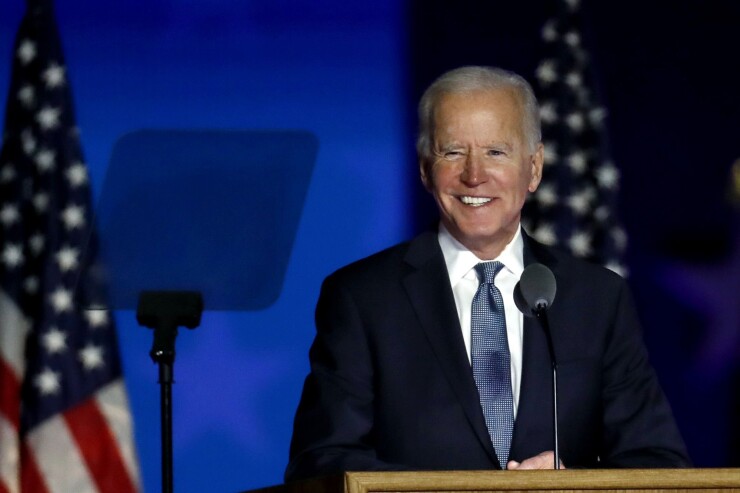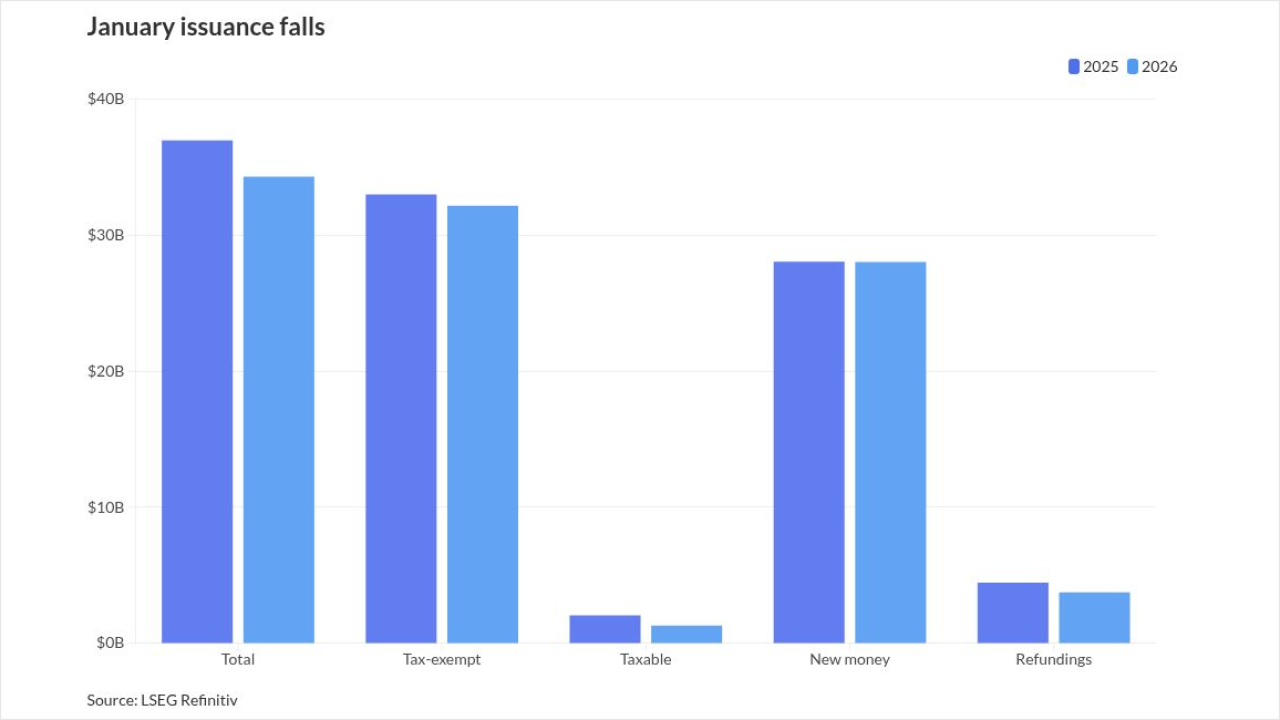
State and local governments will need to focus their efforts on getting additional federal aid from the Biden administration now that Congress has completed its budget work for the year.
President Trump signed into law shortly after midnight Tuesday morning a $900 billion coronavirus relief bill and a $1.4 trillion budget for the 2021 fiscal year that ends Sept. 30.
Fitch Ratings said Tuesday the $900 billion “will help stabilize state and local budgets in fiscal 2021 even if it does not include direct aid to most governments.”
“With at least a modest economic boost from the new stimulus and widespread vaccination on the horizon, we think direct governmental aid is less critical to financial stability than it was in the early days of the crisis,” Fitch said.
House Majority Leader Steny Hoyer, D-Md., said that passage of the package means “the next president will be able to start his administration focusing on immediate challenges instead of trying to finish the previous year’s work.”
But there will be pressure on the incoming Biden administration to quickly approve direct aid to state and local governments.
San Diego Mayor Todd Gloria said his city needs “Congress and the incoming administration to take immediate action so we can continue to keep neighborhoods safe and clean, pave streets, and provide the critical services San Diegans rely on.”
“I will continue to fight alongside my fellow mayors to get the direct assistance we need to jump-start our local economies and begin to build back better for all of us,” the San Diego mayor said.
Sen. Robert Menendez, D-N.J., a co-author of the bipartisan SMART Act to provide $500 billion to state and local governments that failed to gain traction in the Senate, said he was “deeply disappointed Republicans would not include essential aid for state and local governments, putting the jobs of first responders, teachers, and others at risk.”
Only a handful of Senate Republicans supported the SMART Act and later efforts by a bipartisan group of lawmakers to obtain a smaller $160 billion package for state and local governments.
Menendez also highlighted numerous provisions in the 2021 budget, including $2 billion for the Transportation Department’s Capital Investment Grants program, additional transit formula funding, and $700 million for Amtrak’s Northeast Corridor.
Community Development Block Grant funding was increased by $50 million to $3.475 billion. The Community Oriented Policing Services program received a small $2 million increase in funding to $237 million. There’s $5.9 billion in grants for child care and $10.7 billion for Head Start.
Community Development Financial Institutions will receive an $8 million increase to $270 million in the 2021 budget while also receiving a one-time emergency boost from the coronavirus relief package of $9 billion that will be shared with Minority Depository Institutions.
The Supplemental Nutritional Assistance Program known as SNAP is funded at $114 billion, or $46 billion more than fiscal 2020. The bill provides $25.1 billion for Child Nutrition Programs including $30 million for school meal equipment grants and $42 million for the Summer Electronic Benefits Transfer (EBT) program which operates when schools are not in session. The bill also allows for the expansion of Summer EBT to new states.
The Women Infants and Children nutrition program receives $6 billion in discretionary funding while $325 million is allocated for the Commodity Supplemental Food Program, an $80 million increase to ensure seniors who rely on this program will continue to receive additional food each month.
The public finance sector also can expect the Internal Revenue Service to continue rebuilding its workforce with a $409 million budget increase to $11.94 billion.
The 2020 Water Resources Development Act included in the omnibus bill authorizes 46 water resources projects as well as eight project modifications for previously authorized projects. For ports, WRDA unlocks the appropriation of additional funds for harbor maintenance needs from the current $10 billion balance in the Harbor Maintenance Trust Fund (HMTF).
The multifamily housing sector also is getting a boost from the omnibus bill from a tax provision that enhances the 4% Low-Income Housing Tax Credit to establish 4% as a real floor for calculating credits related to certain acquisitions and bond-financed housing developments.
Another tax provision increases for 2021 and 2022 the state ceilings for the 9% Low-Income Housing Tax Credit allocations to qualified disaster zones. The maximum increase across 2021 and 2022 is equal to $3.50 multiplied by the number of state residents in disaster zones and is capped at 65% of the state’s 2020 low-income housing tax credit ceiling. The provision also allows an additional year for properties provided disaster allocations to place those buildings in service.
The $900 billion coronavirus emergency spending bill includes $82 billion for elementary, secondary, and higher education; $45 billion for transportation that includes allocations for transit and airports; $63 billion for healthcare that includes vaccine procurement and COVID-19 testing; $25 billion for rental assistance; $26 billion for nutrition and agriculture programs; and $12 billion for community lenders.
In addition, there’s $166 billion for direct payments to individuals of $600; $325 billion for aid to small businesses; and $120 billion for extending special unemployment benefits another 11 weeks.
National Governors Association Chair Andrew Cuomo, the governor of New York, and National League of Cities Executive Director and CEO Clarence Anthony were among the state and local leaders who predicted public sector layoffs and service cuts as a result of the failure to include direct aid.
Although public transit will get $14 billion and Amtrak will receive $1 billion, as well as the almost $13 billion for public transit in the 2021 federal budget, the American Public Transportation Association said it is not enough.
“APTA and the public transportation industry will continue to advocate for additional emergency funding in the New Year, with at least $32 billion needed to serve essential workers and help our communities recover,” said APTA President and CEO Paul Skoutelas.





